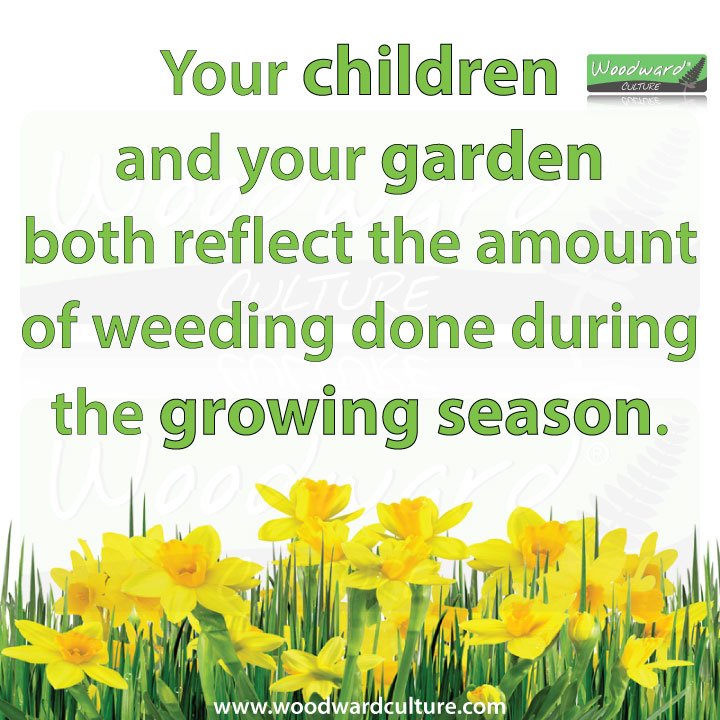
Your children and your garden both reflect the amount of weeding done during the growing season.
This quote draws a metaphorical comparison between raising children and tending to a garden, particularly in the context of the effort invested in removing undesirable elements.
Here are several key points to consider in understanding and reflecting upon this quote:
Metaphor of Weeding
The use of the term “weeding” in the metaphor implies the process of removing unwanted elements or influences. In a garden, weeding involves taking out plants that hinder the growth of desirable ones. Similarly, in the context of parenting, it may refer to the guidance, discipline, and choices made to ensure a child’s positive development.
Reflection of Effort
The central idea is that the quality of care and attention invested during the “growing season” has a direct impact on the outcomes. The growth of both a garden and children is influenced by the effort put into nurturing and maintaining a healthy environment.
Seasonal Analogy
The term “growing season” suggests a temporal aspect. Just as a garden requires consistent care throughout its growing season, children need continuous guidance, support, and positive influences throughout their development.
Responsibility of the Caretaker
The quote places responsibility on the caretaker, whether it be a parent in the case of children or a gardener in the case of a garden. It suggests that the outcomes are a reflection of the caretaker’s choices, actions, and commitment to creating a conducive environment.
Metaphor for Positive Guidance
The use of the metaphor implies that the weeding process is not just about removal but also about fostering a healthy and supportive environment for growth. It aligns with the idea that parenting involves not only setting boundaries but also providing guidance, encouragement, and positive influences.
This quote encourages reflection on the parallels between nurturing a garden and raising children. It suggests that the effort invested in providing a positive and supportive environment, along with the willingness to address challenges and remove negative influences, plays a crucial role in the growth and development of both gardens and children.
















